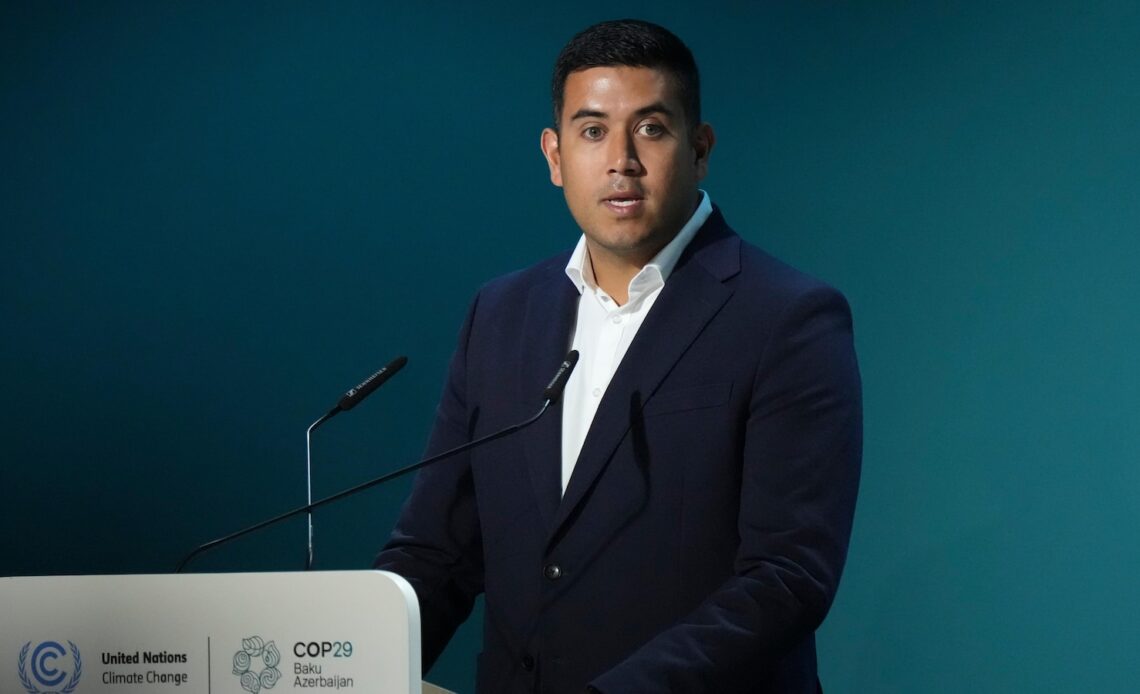BAKU, Azerbaijan — Pragnya Mohan has been a professional triathlete for nearly a decade, but summers in her native India are now so hot that she can’t train there anymore. She escaped the heat to train in the United Kingdom, but worries about a day when a warming world kills her sport entirely.
American discus thrower Sam Mattis described temperatures as high as 44 Celsius (111 Fahrenheit) at the 2021 U.S. Olympic trials in Eugene, Oregon, causing some fans, officials and athletes to pass out. And New Zealand soccer player Katie Rood recalled training in heat chambers to prepare for the Tokyo Olympics, and warmups cut short in high heat and humidity.
All three spoke at the United Nations climate summit in Baku, Azerbaijan to talk about the threat that climate change poses to them, to fans and to sport itself. With billions of fans worldwide, they’re among athletes and leagues trying to get more people to care, and act, on climate change.
“In the future, if climate change is not addressed and is not thoughtfully handled, triathlons can cease to exist,” Mohan said at a panel discussion.
It’s not all about heat. Mohan noted this year’s Paris Olympics had to delay some triathlon events because heavy rains — which have increased as a warming atmosphere holds more water — contributed to high bacteria levels in the Seine River.
Some top soccer clubs have gotten together in a climate action alliance aimed at reducing emissions and inspiring fans to act on climate change. One of those is La Liga club Real Betis. Rafael Muela Pastor, general manager of the club’s foundation, said at another panel in Baku that soccer is “the most powerful and massive sport in the world” and it’s crucial that “we have to do something.”
“We have a super power and we have a responsibility with that,” he said.
Leslie Mabon, a lecturer on environmental systems at the United Kingdom’s Open University, said athletes can raise awareness on issues like global warming, but the most transformative activism often comes from elsewhere.
“I do think athletes can move the needle, but sometimes it’s away from the very highest levels,” said Mabon. “The financial implications of what’s at stake do make it very difficult, and particularly the governing bodies — the leagues, the FIFAs of this world — it’s very hard to get them to take action.”
FIFA — the governing body for world soccer — was unmoved by concerns about heat and human rights in holding the 2022…
Click Here to Read the Full Original Article at ABC News: Health…

